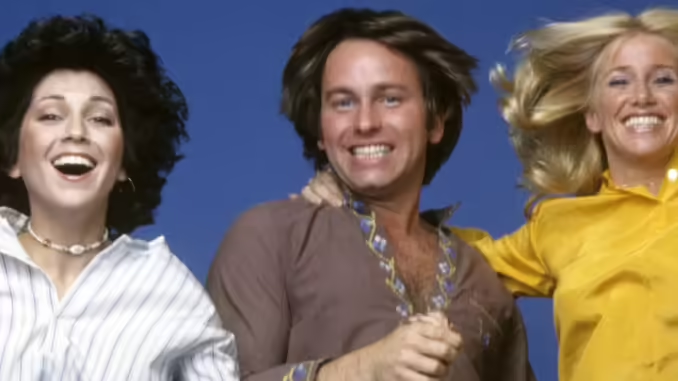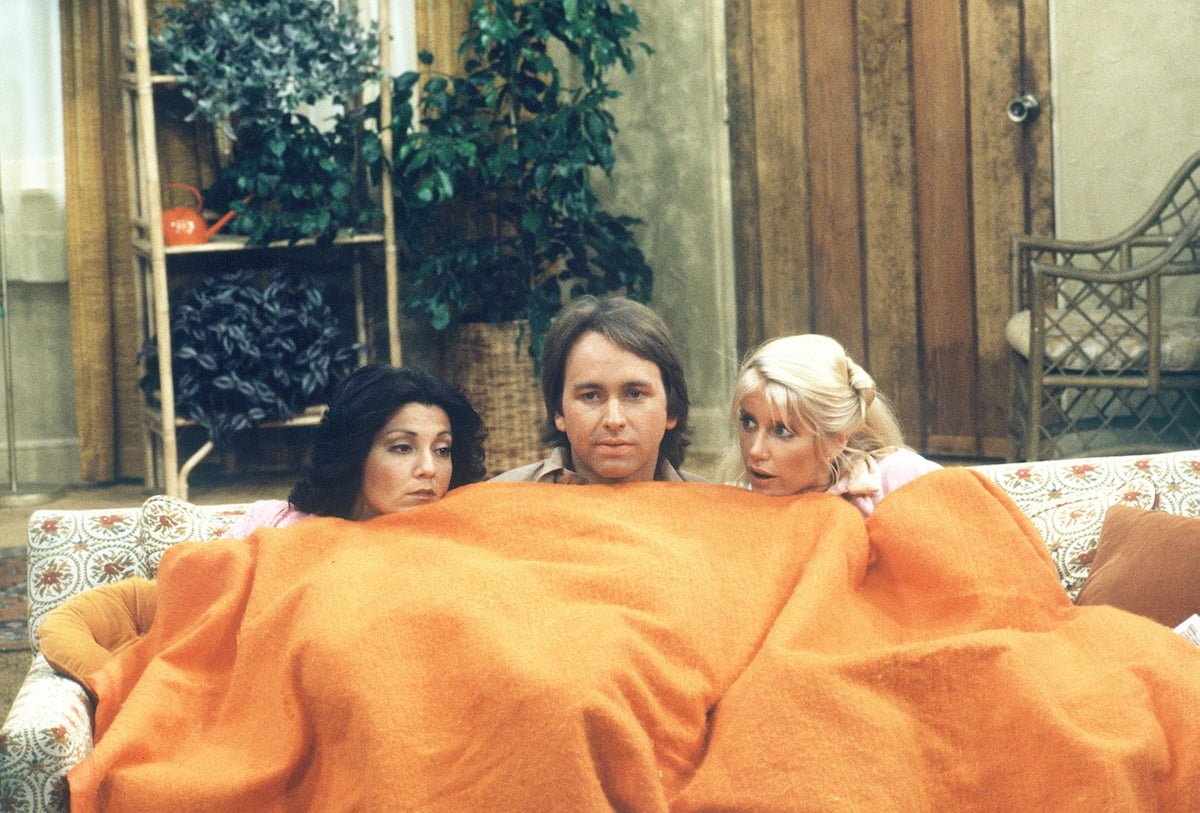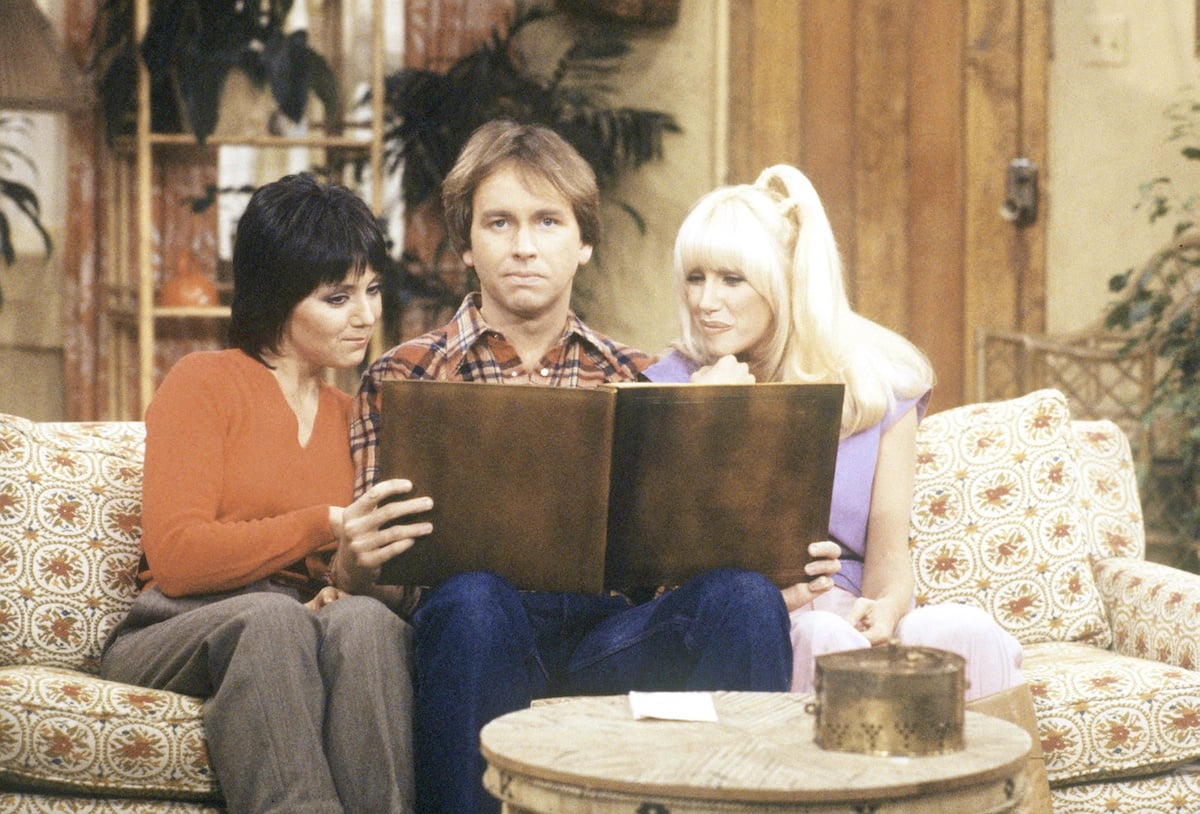
The saying used to go, “Two’s company and three’s a crowd.” The sitcom Three’s Company torpedoed that saying almost as soon as viewers heard the first line of the theme song: “Come and knock on our door.”
However, the show, which made a household name of John Ritter, didn’t just neutralize old sayings. It blew past sexual mores at the time, shocking some viewers with its bawdy jokes.
Nearly 50 years later, those jokes may seem antiquated or tame, but before hindsight set in, the sitcom series was one of the most buzzed-about in the so-called “Me decade.”
What was ‘Three’s Company?’

The sitcom, based on a British show called Man About the House, was about Jack Tripper (Ritter), who accepts an offer to move in with Janet Wood (Joyce DeWitt) and Chrissy Snow (Suzanne Somers). The only catch is their prudish landlord Stanley Roper (Norman Fell) frowns upon co-ed living arrangements. So Janet tells him Jack is gay. Hijinks and shenanigans ensue.
The show became known not only for its racy humor but for its revolving door of cast members. Somers left the show after the fifth season because, according to Mental Floss, she wanted to be paid as much as Ritter was.
But hers wasn’t the only face that changed. Stanley Roper and his wife got their own series, The Ropers, with the legendary Don Knotts of The Andy Griffith Show becoming the Mr. Roper equivalent of the fuddy-duddy perplexed by the roommates.
The show ran for eight seasons on ABC, from 1977 to 1984, spawning not one but two spinoffs. Three’s a Crowd followed Jack Tripper after he actually finds true love with Vicky Bradford (Mary Cadorette). However, there wasn’t much love for that spinoff, with that show only lasting a single season.
Why did some people find ‘Three’s Company’ distasteful?

Even with the series’ popularity and an Emmy award for Ritter, not everyone was laughing at the show’s ribald humor. According to Closer Weekly, the National Religious Broadcasters complained: “What we are concerned about is gratuitous, excessive and perverted sexuality being depicted on the screen.”
Certainly, not everyone saw it that way, least of all the show’s stars. “We were so young and enthusiastic and excited about it that it sort of made us laugh,” said Ritter. “As sexy as it was, it was fairly moral. Those three roommates were very loyal, compassionate and most of the time considerate good friends.”
Even when the sitcom was unintentionally revealing, Ritter laughed off anyone tut-tutting the show. When reruns aired on Nick at Nite, it was found that the episode “The Charming Stranger” gave viewers a glimpse of part of Ritter’s male anatomy.
Ritter cracked: “I’ve requested that [Nickelodeon] air both versions, edited and unedited, because sometimes you feel like a nut, and sometimes you don’t.”
How is ‘Three’s Company’ seen now?
With the passing of time and the addition of hindsight, many people look back on the show with affection. Particularly after the untimely passing of the beloved Ritter, who died while shooting 8 Simple Rules for Dating My Teenage Daughter in 2003 due to an undiagnosed aortic dissection.
Even aside from that sentiment, the show tastes like comfort food to a New York Times writer, who found Three’s Company to be an ideal antidote to the trials of 2020.
The “sexism in Three’s Company is truly something to marvel at because it’s so in your face. Although they’re not exactly modern pillars of female empowerment, Janet and Chrissy do hold their own with the creeps. And if Chrissy didn’t prance around in her negligee, it wouldn’t be Three’s Company,” Dina Gachman observed.
Two seasons of the show can be streamed on fuboTV.
